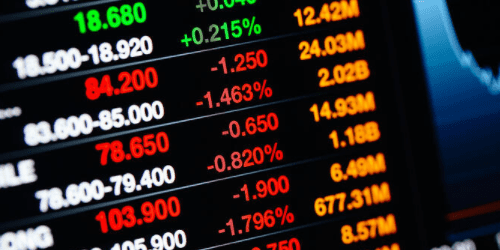Your KiwiSaver funds are a very important investment. Whether you’re saving for your first home or teeing up that retirement down the track. So it begs the question, what will happen to your KiwiSaver if things go bad? Are you all set up in preparation for the next recession?
Why Did My KiwiSaver Drop?
Before knowing what the right action to take in preparation for a recession, it’s important to know what happens to the average KiwiSaver account when it occurs and why.
A recession is the result of large-scale macroeconomic events, causing a heavy downturn in the economy. This often causes a drop in many market prices which can severely impact the value of a KiwiSaver investment (such as your fund). No matter how good your fund Manager is, nine times out of ten you are still going to take a hit.
During the initial explosion of the Covid 19 pandemic into our world, the repercussions on the economy were heavy due to the immediate halt on so many business operations. This resulted in a large market decrease which saw many New Zealander’s KiwiSaver funds dropping. But why were some Kiwi’s hard-earned savings taking more of a hit than others?
This mainly comes down to the types of fund you are investing in. No, amongst all the KiwiSaver investment options out there, they are not all the same! KiwiSaver funds differ when it comes to their returns, fees, type of investments, you name it! There’s a fund for almost every investor. For that reason, some KiwiSaver funds saw more of a dive than others. The main concept to grasp here is that they were all affected to a certain degree, and that’s completely ok! The important thing is to not make any rash decisions and change KiwiSaver at a point of a major downturn without thinking it through.
Will My Savings Recover?
Short answer – Yes.
The increase in the market does not happen in a steady fashion. There are many ups and downs. Some dips (such as Covid 19) are just steeper than others. The important thing to note is that this has happened before, and it certainly will happen again. We have seen this many times throughout market history such as the 1929 Wall Street Crash, the “Black Monday” crash of 1987 and the Global Financial Crisis in 2007-2008, just to name a few. These events were undoubtedly massive in terms of their financial effects on the world, but when looking from afar the drops in the market during these times are but mere tiny blips when compared to the overall rise of the economy in the long run.
Looking at Covid’s impact on market prices, it’s encouraging to see that funds have already recovered and actually exceeded levels prior to the introduction of the virus. This shows how little impact such a major event will have on your long-term KiwiSaver investment. In a further few years down the track, Covid will show up as just another mere blip on the market’s historical chart until the day when the next financial crisis strikes where it will happen all over again. This is normal and expected. It is something you should be aware of when joining KiwiSaver. You don’t want to access your AMP KiwiSaver login for example, or whoever your provider is, and panic at the sight of it.
How Can I be Prepared?
The first step to being prepared for the next financial downturn is to understand that investing in a KiwiSaver scheme will have its ups and downs. Having the understanding that a recession is only temporary and an unavoidable part of the economy’s cycle will help you refrain from making hasty decisions that could really hinder your KiwiSaver investment and potential future gains. Keeping calm and riding the storm, immediately puts you ahead of the pile of panicked investors. Not touching your invested funds, especially when you plan on making long-term returns, can be the best move to recover as much loss from the small drop as possible.
Secondly, having chosen the right type of fund to suit you and your capacity for volatility can have a massive impact on how prepared you are. If you’re not expecting to retire within the next few years then your capacity for volatility or more simply put, your ability to withstand and recover from the change in the market is very high meaning that you could be suited to a fund with the opportunity for more growth. Accessing KiwiSaver money is not a short-term necessity essentially. But if you are looking to retire soon then a more conservative fund could be the go for you. It all comes down to your own situation and personal preferences. Those can change from KiwiSaver sign up through to different stages of your life.
If you are unsure about whether you and your KiwiSaver are prepared for your future then take a look at National Capital’s Health Check to see if you’re in the best possible position to suit your circumstances. Because at the end of the day, we may all be in different positions but we can all be financially secure and that is National Capital’s mission.

